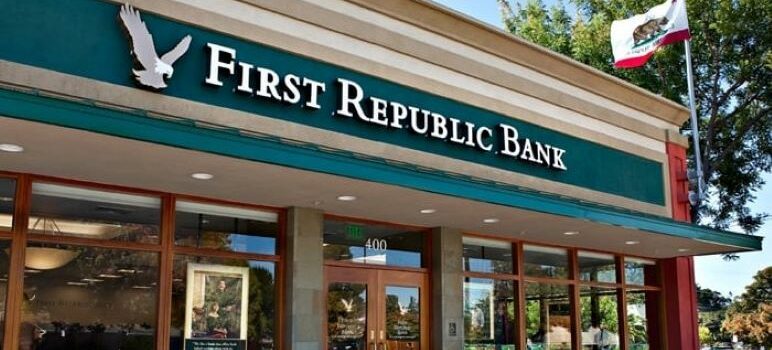Two more banks with strong Silicon Valley connections, Bridge Bank of San Jose and First Republic Bank of San Francisco, saw their stock prices plummet, then rebound slightly today.
First Republic stock had rallied Friday after falling more than 40% early in the day amid the catastrophic collapse of Silicon Valley Bank. First Republic was seen as a possibly safer haven for technology companies trying to escape Silicon Valley Bank’s shuttering by state regulators.
But today the bank, sold by Bank of America in 2009 to a private equity group, saw the bottom fall out of its own stock, to as low as 17.53 – a 90% slide – before regaining some ground, to $31.21 by the 4pm closing bell. First Republic stock was 73% higher, at $115.01, just five days ago.
That's nearly 62% lower than its opening price of $81.59, an indication of the continued volatility of two more tech-savvy banks, after three bank failures in the previous week.
Also today, shares of Bridge Bank's parent company, Western Alliance Bancorp (WAL) of Phoenix, took an 84% plunge in the first 90 minutes of trading, before rebounding to $26.11 per share by 4pm closing time.
That is still 47% off Friday’s closing price of $49.34 and 60% lower than the bank corporation’s stock price of five days ago.
The selloff of the Western Alliance stock, which merged with Bridge Bank in 2011, was set to surpass the corporation’s record one-day drop of 39.4% suffered on Sept. 19, 2008, in the midst of the financial crisis. Western Alliance had tried on Friday to reassure investors, stating that “deposits remain strong” and “liquidity remains robust.” The bank
Over the weekend First Republic had announced it had improved its financial position through “additional liquidity” raised from the Federal Reserve and JPMorgan Chase. First Republic said Sunday it had “more than $70 billion” in unutilized liquidity “to fund operations.”
In its fourth quarter report, First Republic’s CEO Mike Roffler had cheered 2022 as “another terrific year of safe, consistent and organic growth,” The bank reported double-digit increases in total revenues, net interest income and net income.
Other financial institutions saw stock prices drop at mid-day on Monday. PacWest Bancorp of Los Angeles,dropped 32%, Zions Bancorporation of Salt Lake CIty fell 19% and Cleveland’s KeyCorp fell 23%.Many bank stocks were halted repeatedly “for volatility,” according to CNBC.


Just an Observation,
So many deposits are going to be bailed out.
LENDERS are going to see their loans vanishe ina BAD way. The buyers of any failed bank are NOT required to honor prior loan contracts.
Thus those loans will be renegotiated or the collateral will taken by the buyer. The renegotiation will establish a 80% underwriting, requiring a 20% down payment and a current higher interest rate.
So many people claimed toe wealthy by claiming property debt was wealth. This is going to be a very rude wake up.
Just an Observation,
I recently read there is $670 Billion in UNREALIZED LOSSES in the financial sector.
What that means is that in the banking system alone we have nearly $1Trillion of unreported losses. And that doesn’t touch all the other businesses that exist. I can picture that this could account for as much as $15 Trillion.
This is going to get REALLLY ugly fast. Remember depositors are insured but LOANS, MORTGAGES, COMMERCIAL MORTGAGE BACKED SECURITIES and RESIDENTIAL MORTGAGE BACKED SECURITIES as a lost cause.
It is time to clean the books, time for investors to lose whatever it takes to get rid of this shell game.
As a person with 2 business degrees and studied accounting and economics, this is the BIGGEST SCAM IN WORLD ECONOMIC HISTORY